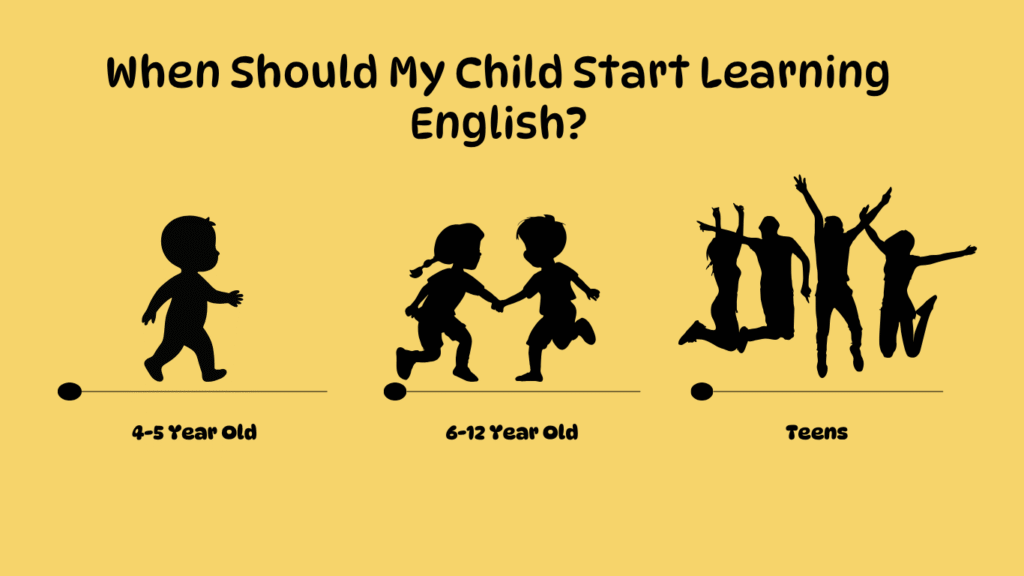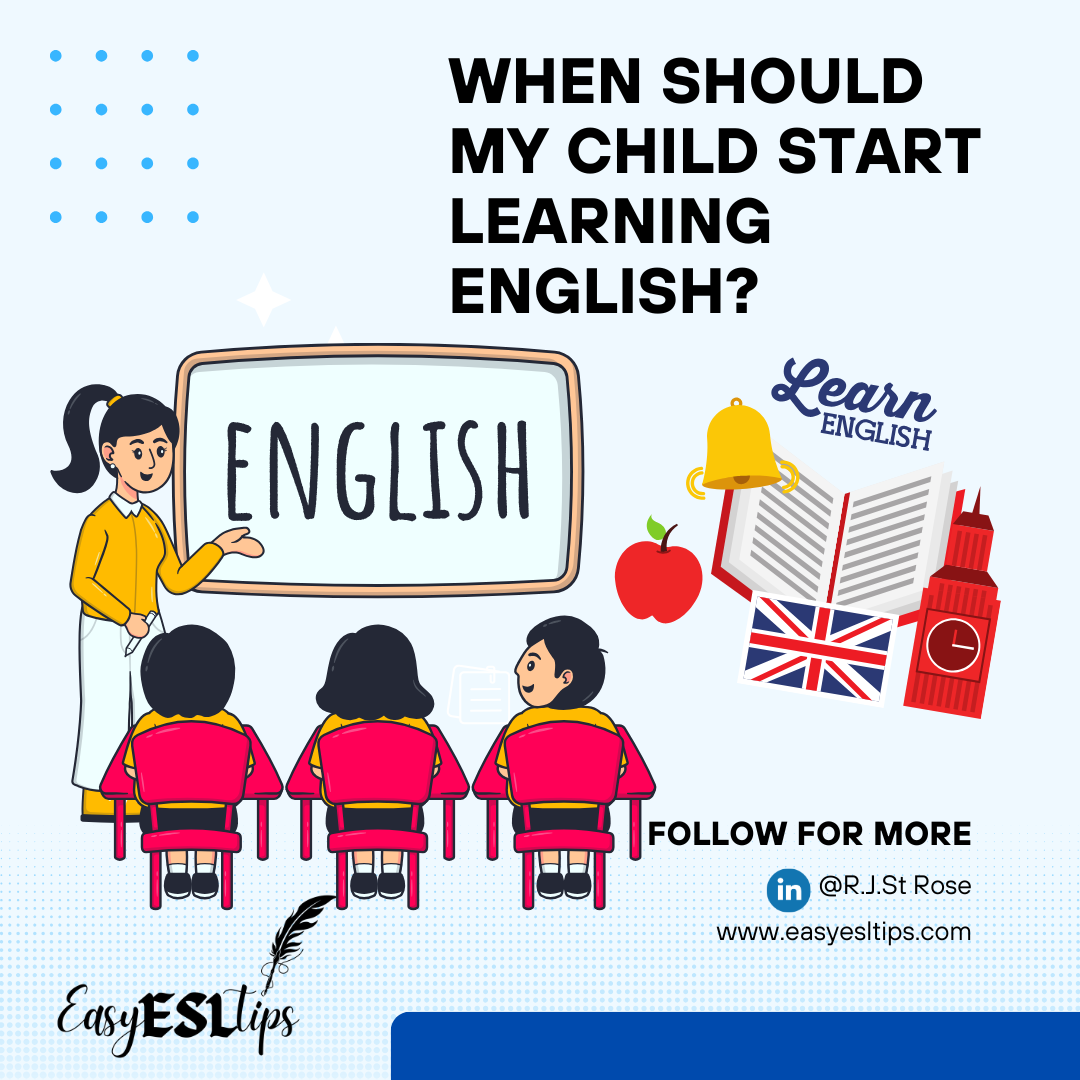If you’re wondering “When Should My Child Start Learning English?” you’re asking the right question. Many parents considering learning English as a second language online for kids want to know the best age to begin. Based on expert advice and research, this article helps you decide the optimal time to enroll your child and how to get started.

Why Age Matters: Cognitive Advantages of Early Start
Starting English before or around age 4–6 leverages key developmental windows:
- Children absorb language naturally and intuitively
- They mimic pronunciation and intonation easily
- Early learning boosts memory, creativity, and abstract thinking
Studies show that beginning before school helps avoid psychological barriers and builds a confidence foundation before formal schooling begins.
You can check these articles to get more info on why why age matters when starting to learn English as a second language from Novakid.
Ideal Starting Ages & What to Expect
Ages 4–5 (Preschoolers)
- Native language is well established
- Brain is still flexible—excellent for pronunciation
- Learning through games and songs is very effective
Age 6 and up (Early school years)
- Children are curious and socially motivated
- English lessons can start to include reading, vocabulary, and grammar basics
- Less anxiety and greater engagement at this age
Benefits of Starting Young
Starting early brings many advantages:
- Faster Language Acquisition – Young brains absorb vocabulary with ease
- Better Pronunciation – Speech organs adapt quickly to new sounds
- Cognitive Growth – Boost memory, attention, imagination
- Greater Confidence – Low fear of mistakes encourages speaking
- Academic Success – Strong English skills support schoolwork
- Future Opportunities – Opens doors to global learning and careers
Here is a great article from Novakid that talks about the Benefits of Learning English at an early age.
Why Online English for Kids Works
Many parents choose online English programs for flexible, engaging learning. Novakid, for example:
- Offers fun gamified lessons with native-speaking teachers
- Caters to ages 4–12 via 25-minute interactive classes
- Uses VR tours, singing, games, and personalized feedback
How Parents Can Support at Home
Helping your child learn daily improves retention:
- Speak English for short, regular routines (e.g. “English time” at home)
- Use simple English questions: “What did you do today?”
- Encourage reading, crafts, games, and singing in English
- Praise effort and progress—even small successes
Practical Tips
When is the best age to start?
Between 4 and 6 years old is considered optimal: kids speak their native language fluently and can pick up a foreign language naturally without confusion.
Can a 3‑year‑old start?
They may try, but most 3‑year‑olds aren’t yet steady in their first language—this can cause mixing or delays. Ages 4–5 are a safer, more effective launch point.
What if my child starts later—say age 8 or 9?
Starting later is still valuable. Novakid’s programmes work well with 7–9‑year‑olds by making grammar and vocabulary fun through games and stories..
How long should lessons be?
25 minutes per session is ideal for maintaining attention. Aim for 2‑3 sessions per week for consistent progress.
Should native English-speaking teachers lead?
Yes! Native speakers help kids absorb pronunciation and rhythm more effectively—especially in immersive, play‑based formats. However non-native speaker may be a able to communicate difficult principles in a more relatable manner.
Bringing It All Together
Choosing the right time to start learning English online for kids depends on cognitive readiness, motivation, and consistent practice. Ages 4–6 offer tremendous potential, and online platforms like Novakid make immersive learning accessible, fun, and effective for busy families.
For more detailed tips on creating a supportive learning routine and avoiding common mistakes when starting English at home, check out this helpful post on how to learn English with your kid at home on the Novakid blog.
By giving your child an early start in English through enjoyable, structured online lessons and home support, you’re setting them up for confidence, fluency, and lifelong advantages.
Frequently Asked Questions
No—when timed right (around age 4–5), children distinguish languages without mixing, as their native language foundation is already solid.
Progress varies. With regular 2‑3 online lessons a week plus daily exposure at home, many children become conversational within months.
Encourage small efforts, use positive feedback, and make learning playful—avoid correction overload and let confidence build gradually.
Yes—they match CEFR standards, build reading and grammar skills, and ease school transitions through engaging formats.
Individual classes allow tailored pacing. Small speaking groups add social interaction—but individual lessons give more focused support.
Choose one with native speakers, gamified lessons, short attention‑friendly sessions, progress reports, and trial lessons.
Choosing when your child should start learning English is a key decision—ideally between 4 and 6 years old, when they’re cognitively ready and eager to explore. Supporting online learning supplemented by fun home routines helps them thrive.
For more guidance, including how to build English routines at home and avoid pitfalls, visit Novakid’s helpful article: How to learn English with your kid at home: what you should know to avoid common mistakes and get better results.


Leave a Reply